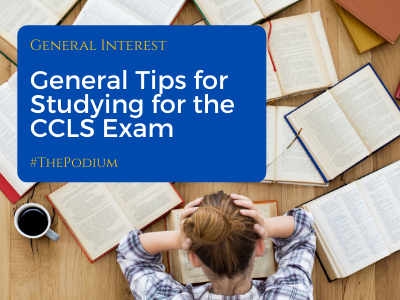
- Commit to Taking the Exam. You have made a commitment to take and pass the examination – make this a priority, do not allow yourself to be distracted from your goal. Make the commitment to take the exam, even if you feel you are not ready – the first time is always the hardest! It also helps to make you more comfortable for the next time because you will know what to expect.
- Find a Study Buddy. Whether you are participating in LPI’s On-Line Study Group or a local study group, find a study buddy. It’s always a good idea to have support behind you – whether they are also taking the exam or are just helping you to do so.
- Plan a Schedule of Balanced Activities. Don’t try to learn everything on a subject in one day– spread the subject out over time. You have a better chance of having the material sink in.
- Plan Your Time. Plan enough time to study effectively. While quick breaks are a great time to review, the bulk of your studying should be done at a time when you are not distracted by other duties, such as work, making dinner, or family time. Don’t try to study for more than two hours at any one time and remember to take breaks – overloading on information is not conducive to the absorption of the material. Scheduling the same time every day to study is a good way to get into a routine.
- Choose the Correct Location to Study. Choose a location that is best for you to study. For most people, a quiet place with no distractions, such as TV, phones, or other people, is best. Also, study sitting at a desk or table, not lying down. Make sure you have sufficient light, and plenty of space to spread out.
- Begin Early. Begin early – don’t wait until a few weeks before the exam. There is a lot of material to cover while studying for the CCLS exam, and you should provide sufficient time to go over all material in an organized fashion.
- Prepare Before Beginning. Before you begin studying, make sure you have all the necessary materials at hand for what you are covering during that session. Having to stop studying to find the book or notes you need can be very distracting and take away from the effectiveness of your studies.
- Practice Self-Recitation. Re-use your study materials, such as Study Guide exams and worksheets, to determine what you know, have learned, or need to concentrate on. If you re-take the Study Guide exams multiple times without reviewing your prior answers before re-taking, you can help determine what you already know or have learned, and in which areas you need to do further studying by comparing all of your previous answers after each re-take. You can also prepare flashcards to review, or if you have a cassette player, you can read onto a cassette and replay it while driving or cleaning the house.
- Ask Questions. If you are having trouble in a particular area, do not be afraid to ask questions. Someone else may be able to explain it to you in a way that will help you understand.
- Don’t Cheat Yourself. Do not look at the answers when taking the Study Guide exams or doing worksheets – wait until you are completely done with the exercise, then review the answers. The only person being hurt by cheating is you. When taking Study Guide exams, time yourself so you feel the time pressure that exists during the exam.
Categorized in: General
| << previous | next >> |








